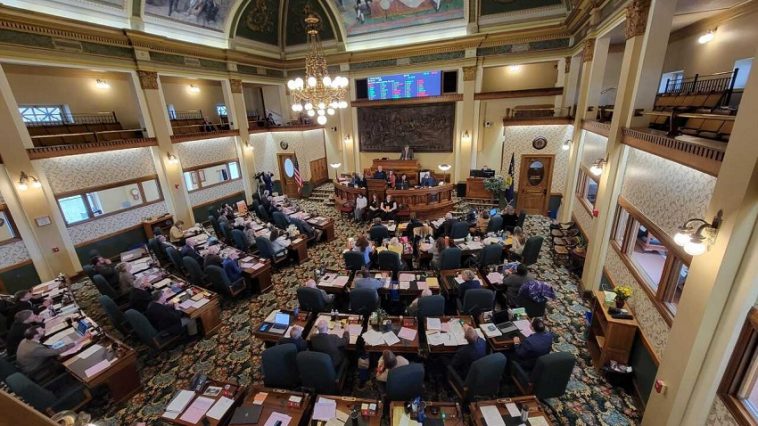Missoula, MT – As the 2025 session of the Montana Legislature nears its conclusion, lawmakers are putting the finishing touches on a contentious property tax reform plan that has sparked debate across the state. Two major bills, Senate Bill 542 (SB 542) and House Bill 231 (HB 231), were recently sent to a conference committee to reconcile differences between the two chambers. The result has been a combination of both bills, with SB 542 largely remaining intact while HB 231 underwent significant amendments to act as coordinating legislation for the property tax changes outlined in SB 542.
SB 542, a central piece of the reform package, proposes adjustments to property tax rates, lowering them on primary residences, long-term rentals, and small commercial properties, while raising rates on properties that do not qualify for these exemptions. Additionally, the bill includes a one-time rebate of up to $400. Lawmakers noted that the rebate was necessary because it is too late to implement the homestead rate changes for the current year.
HB 231 originally proposed a similar system to SB 542 but was substantially altered in the conference committee. The amendments to HB 231 essentially nullified its earlier provisions, with the remaining language aimed at simplifying the alternate tax rates introduced by SB 542. These new rates would be graduated, meaning owners of higher-value residential properties would pay a higher rate. Proponents of the amendment argued that it was too difficult for the Montana Department of Revenue to accurately implement the original rate structure in time for this year’s tax cycle.
Despite the changes, the bills have drawn significant opposition, particularly from business and agricultural groups. Critics, including the Montana Chamber of Commerce, argued that the reforms would not provide true tax relief but would instead shift the tax burden onto businesses, farms, and ranches. Todd O’Hair, president and CEO of the Montana Chamber of Commerce, expressed concerns that the bills would add complexity to an already convoluted tax system, discouraging investment in the state.
“It’s not about relief,” O’Hair said. “It’s about who pays. And the burden is shifting, not lightening.”
On the other hand, supporters of the reform package, including Rep. Llew Jones (R-Conrad), emphasized that the changes were necessary to address the disproportionate tax burden that residential properties have faced in recent years due to rising property values.
“We’re going to have to recognize that in a state where the residential shift has been so enormous, both relative and real, that something has to be done,” Jones stated.
The bills have now moved back to the legislature for final approval. On Tuesday afternoon, both SB 542 and HB 231 were endorsed in an initial Senate vote, passing 28-22 and 29-21, respectively. However, opposition from lawmakers like Sen. Greg Hertz (R-Polson) has continued to mount. Hertz and other critics have questioned whether the late-stage amendments followed the proper legislative process.
“I’m fine if we just kill this thing and come back in a special session,” Hertz remarked. “We need to get it right, and we’re not getting this right. And that’s the problem.”
With both bills now on track for final passage, the debate over Montana’s property tax system is far from settled. As lawmakers prepare for the final stretch of the session, it remains to be seen whether the proposed changes will provide the relief supporters hope for, or if they will place an additional burden on businesses and the agricultural community, as critics fear.



